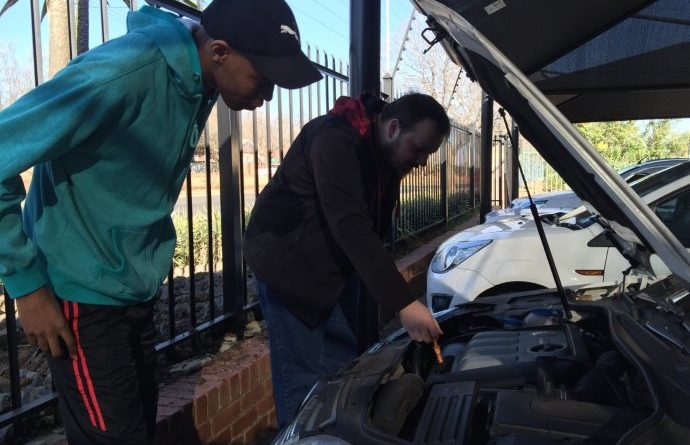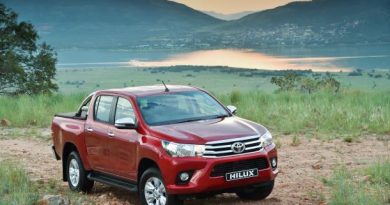What to know before purchasing a vehicle in South Africa
In personal finances, vehicles constitute a substantial portion of expenditure for individuals. Remarkably, motorists spend approximately R2,180 of the average person’s budget is allocated to transportation, encompassing vehicle costs and fuel. This places transportation as the second-largest expense after housing, before essential needs like food, education, and retirement savings. ¹,2
The financial significance of cars and trucks can induce stress, particularly for younger, first-time buyers who often need more established credit histories and limited savings. The current market conditions only intensify these concerns. The average cost of a new vehicle, encompassing cars, crossovers, vans, pickup trucks, and SUVs, exceeded R800 000 by the end of 2021, reflecting a staggering increase of over 25% in just two years. The surge in average used vehicle prices is even more pronounced, rising by 42% from under R300 000 at the close of 2019 to surpass R520 000 two years later. This surge surpasses general inflation during the same period, attributed to a production slowdown due to the pandemic, heightened consumer demand and a global microchip shortage. ¹
Amidst this financial landscape, the question arises: What is the optimal approach to purchasing a first vehicle in today’s challenging market? ¹
Initiating the Car-Buying Process
For new buyers, the initial step involves determining the type of vehicle needed and establishing a budget. Careful consideration should be given to practical needs, commuting distance, cargo requirements, and personal driving preferences. Prospective buyers should consider renting a larger vehicle only when necessary. ¹
Given the soaring prices, budget vigilance is crucial. The importance of aligning test drives with financial feasibility emphasises that there’s no point in test driving a car beyond one’s financial means. Financial experts generally recommend allocating at most 20% of take-home pay to vehicle-related expenses, encompassing payments, insurance, and fuel. ¹
Choosing the Right Type of Vehicle
The current trend in vehicle preferences reveals that nearly half of car shoppers opt for crossovers. These vehicles, characterised by a tall design based on passenger cars with an open back area, offer a balance between the efficiency of traditional cars and some off-road capabilities. However, individuals who don’t require a heightened driving position or seldom encounter deep snow may find traditional cars more suitable, given their lighter weight and lower centre of gravity. ¹
Consideration of specific needs, such as towing capacity or off-road capabilities, influences the decision between traditional SUVs, pickups, and crossovers. For those contemplating electric vehicles, it’s essential to note the evolving market, where battery-powered options are gaining prominence. While electric vehicles constitute a small percentage of total sales, federal tax credits and state subsidies may alleviate the financial burden for potential buyers. ¹
New or Used: Deciding on the Best Value
Traditionally, opting for a low mileage used vehicle has been a prudent financial decision. However, the dynamics have shifted during the COVID-19 pandemic, with used car prices outpacing those of new vehicles. The narrowing price gap and the appeal of a full warranty and favourable financing rates for new cars challenge the conventional wisdom of exclusively buying used. ¹
Certified pre-owned (CPO) vehicles present an intermediary option for buyers, offering the assurance of manufacturer-backed warranties and additional rewards such as roadside assistance. While CPO vehicles come at a higher cost than other used cars, the peace of mind they provide can outweigh the additional expense. ¹
Financing Considerations
Choosing how to pay for a vehicle involves evaluating assorted options. While paying in cash eliminates monthly payments and interest, it may only be feasible for some. Financing through loans or leasing emerges as alternatives, each with pros and cons. ¹.
Leasing generally entails lower monthly payments but doesn’t confer ownership at the end of the term unless a substantial lump-sum payment is made. On the other hand, loans often prove more cost-effective overall, especially for those retaining vehicles for an extended period. Understanding credit scores, obtaining pre-approval for loans, and cross-shopping lenders are essential for prospective buyers. ¹
Where to Buy: Dealerships or Direct Platforms
Most new and used car transactions still occur through dealerships, providing the convenience of viewing and test-driving multiple vehicles in one location. However, potential downsides include aggressive sales tactics and the potential inclusion of unnecessary services at inflated prices. No-haggle dealerships offer alternative purchasing experiences, albeit at potentially higher costs. ¹
Buyers can also purchase from private sellers, which can be more cost-effective but involves additional responsibilities such as handling paperwork and securing financing independently. The choice between dealerships and private sellers often hinges on individual preferences and priorities. ¹
Timing the Purchase
Historically, strategic timing, such as waiting until month-end or targeting discontinued or redesigned models, has influenced the car-buying decision. However, prevailing circumstances, with prices reaching all-time highs and projections indicating stability until 2023, necessitate a more nuanced approach. For those with reliable existing vehicles or access to public transportation, postponing a vehicle purchase might be the most prudent choice. ¹
In conclusion, navigating the current automotive market demands a comprehensive understanding of personal needs, budget constraints, and the industry’s evolving dynamics. With careful consideration and informed decision-making, prospective buyers can optimise their purchasing experience in the face of unprecedented challenges. ¹

Disclaimer:
The article aims to provide South African motorists with what to know before purchasing a vehicle.
Are you thinking of buying a new or used car? You will need comprehensive car insurance if you plan to finance your future vehicle purchase. Get a quote for affordable Comprehensive car insurance with PMD, with fixed premiums*, reducing excess*, and excellent service today. T’s and C’s apply.
Please get professional financial advice from a certified financial advisor to ensure you select the appropriate financial services product.
Sources:
- https://www.cnbc.com/2022/04/09/thinking-about-buying-a-car-heres-what-experts-say-you-need-to-know.html
- https://businesstech.co.za/news/motoring/473242/how-much-it-costs-south-africans-to-get-to-work/
This article was prepared by Eric Sandmann in his personal capacity. The views and opinions expressed in this article are the author’s own. The views and opinions in the article should not be attributed to anyone but the author unless expressly stated. Nothing in this article should be relied upon as advice, this publication is presented for informational purposes only. No person should act or refrain from acting in reliance on any information found in this article, without first obtaining proper financial advice from the appropriate professional. The author makes no claims, promises or guarantees about the accuracy, or completeness, of any information linked from, referred to, or contained in this article. The author reserves the right, to edit and change the content of this article.




